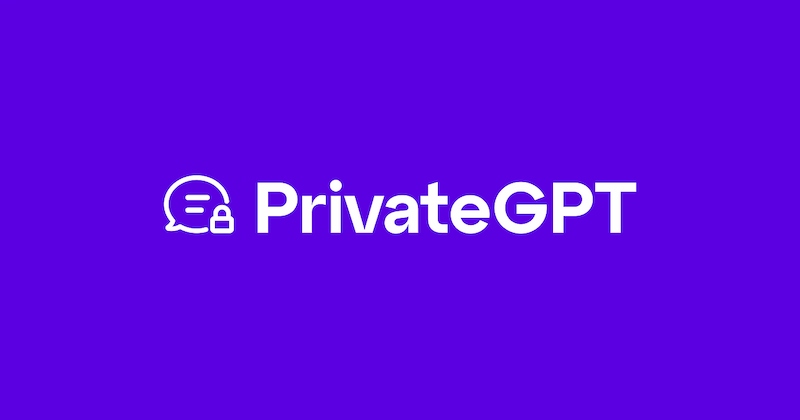PrivateGPT is an advanced AI language model designed to provide personalized and secure communication. Unlike other models, PrivateGPT emphasizes privacy, ensuring that sensitive information remains confidential. It is ideal for those who prioritize data security.
AI has changed how we manage, analyze, and interact with documents. From drafting contracts to processing complex legal documents, AI tools offer unprecedented efficiency. But the convenience of AI often comes at the cost of data privacy.
AI relies on cloud servers to process and store data. This raises serious concerns about the confidentiality of sensitive information. This is where PrivateGPT comes in. It offers a solution for those who value privacy in their AI use.
Data Privacy in AI Applications
AI in document management has boosted productivity. But it has also created new vulnerabilities. When you upload your documents to an AI service, the data is often sent to a remote server where it is processed. This transfer of data presents a significant risk. A 2022 IBM study found the average data breach cost $4.24 million. It often targets sensitive information. Using AI to handle documents, from contracts to personal data, poses a risk. Any breach could have severe repercussions.
Also, laws like GDPR in Europe and the CCPA in the US limit how personal data can be handled. Companies must protect the data they process. Failing to do so can lead to heavy fines and reputational damage. Given these rules, businesses and individuals are now wary of the AI tools they use.
Even AI services that claim to be secure can fall short. Many rely on encryption for data transfer and storage. But it does not fully drop the risk of unauthorized access. Once your data is on a third-party server, it’s out of your control. Some services offer on-premise solutions. But they can be costly and complex to implement. We need an AI that guarantees privacy but still works well.
Why Current Solutions Fall Short
Despite advances in AI, most current solutions cannot protect data privacy. Popular AI tools often need an internet connection to work. So, your data is vulnerable to interception, misuse, or accidental exposure. These tools process vast amounts of data. They often need access to cloud servers. There, your documents are analyzed with millions of others. Even with robust encryption, the risk of a breach remains as long as your data is stored externally.
Also, many AI providers can access your data to “improve services.” This means your documents could train algorithms. It might expose sensitive information in ways you didn’t intend. In 2020, a major tech company faced scrutiny. They used customer data to improve their AI models without consent. Such practices not only violate privacy but also erode trust between users and service providers.
Also, if the cloud provider has downtime or a cyber attack, you may lose access to essential AI tools. This particularly concerns businesses that rely on AI for day-to-day operations. The need for a truly private, reliable, and efficient AI solution has never been more apparent.
How PrivateGPT Addresses the Problem
Enter PrivateGPT. It’s a production-ready AI project. It provides a secure, private way to interact with your documents. Unlike traditional AI services, PrivateGPT operates entirely within your own environment. This means that your data never leaves your local system, eliminating the risk of external breaches.
PrivateGPT uses Large Language Models (LLMs). But it has a key difference—it needs no internet to work. This offline capability is crucial for ensuring that your data remains confidential. If you have sensitive contracts or worry about privacy, use PrivateGPT. It’s the solution for you. It meets your needs.
A key feature of PrivateGPT is its API. It mirrors and extends the OpenAI API standard. If you’ve used OpenAI’s tools, you can easily switch to PrivateGPT with minimal changes. The API supports normal and streaming responses. This lets you choose how to deploy the AI. Also, because PrivateGPT can run locally, there are no fees. Once installed, it’s free to use.
Installation Process: Quick and Easy Setup
For Mac or Linux users, setting up PrivateGPT is easy. But it needs some technical knowledge. The installation process is:
-
Install Python 3.11 on your system if you haven’t already. This is a prerequisite for running PrivateGPT.
-
Clone the PrivateGPT repository from GitHub:
bash
Copy code
Git clone https://github.com/imartinez/privateGPT & CD privateGPT
-
Set up a virtual environment to ensure that your PrivateGPT installation is isolated from other Python projects on your machine:
bash
Copy code
Python3.11 -m venv. venv and source. venv/bin/activate
-
Upgrade Pip and Install Poetry for managing dependencies:
bash
Copy code
pip install — upgrade pip poetry
-
Install privateGPT with UI and local capabilities:
bash
Copy code
poetry install—wwith UI, local
-
Launch the PrivateGPT API Server and Gradio UI:
bash
Copy code
python3.11 –m private_gpt
-
Open a new browser window to access your private GPS interface:
bash
Copy code
open http://127.0.0.1:8001/
By following these steps, you can run PrivateGPT on your system in about 10 minutes. This is if you have a stable internet connection with at least 7 Mbps speed. The install process is user-friendly. But some knowledge of terminal commands and Python environments will help.
Performance and Compatibility
PrivateGPT runs efficiently on many systems, including Mac Minis. The model is over 4GB in size. It can handle complex queries while responding quickly. In tests conducted on a Mac Mini, the installation was completed in just under 10 minutes, and the response time for queries was impressive. PrivateGPT runs well on low-resource hardware. It is smooth and responsive.
Case Study: Real-World Application of PrivateGPT
To understand PrivateGPT’s uses, let’s consider a real example. A small law firm, worried about client privacy, ran PrivateGPT on its office network. The firm’s IT team followed the steps above. They set up PrivateGPT on a Mac mini.
The installation was quick, taking just under 10 minutes to complete. Once installed, the firm could interact with its documents using the PrivateGPT interface. The team was impressed with the speed and accuracy of the AI’s responses. They knew that none of their sensitive information was sent to a third party.
The firm also valued that PrivateGPT could integrate with their tools without changing their code. By running PrivateGPT locally, the firm avoided the costs of cloud-based AI services. It also ensured full compliance with privacy regulations. The IT team found the process smooth and low intervention. So, PrivateGPT is ideal for businesses that prioritize security and efficiency.
Conclusion
In an era where data privacy is paramount, the need for secure AI solutions has never been greater. PrivateGPT provides a secure, private way to use AI. It keeps your documents safe. PrivateGPT is a game changer. It works offline, installs easily, and is compatible with existing tools. It’s perfect for anyone who needs to keep their data private.
If you’re looking for a reliable, private AI solution, consider giving PrivateGPT a try. It’s a small investment of time that could save you from significant risks down the line.
FAQS
What is PrivateGPT?
PrivateGPT is a confidential AI tool that allows you to interact with your documents using Large Language Models (LLMs) without requiring an internet connection.
How does PrivateGPT ensure my data is private?
PrivateGPT operates entirely offline, meaning that no data is transmitted to external servers.
Can I use PrivateGPT with my existing tools?
Yes, PrivateGPT provides an API that follows and extends the OpenAI API standard.
What are the system requirements for installing PrivateGPT?
PrivateGPT requires Python 3.11 and a system capable of running a model of over 4GB.
Is PrivateGPT free to use?
Yes, once you install PrivateGPT locally, it’s free to use.




